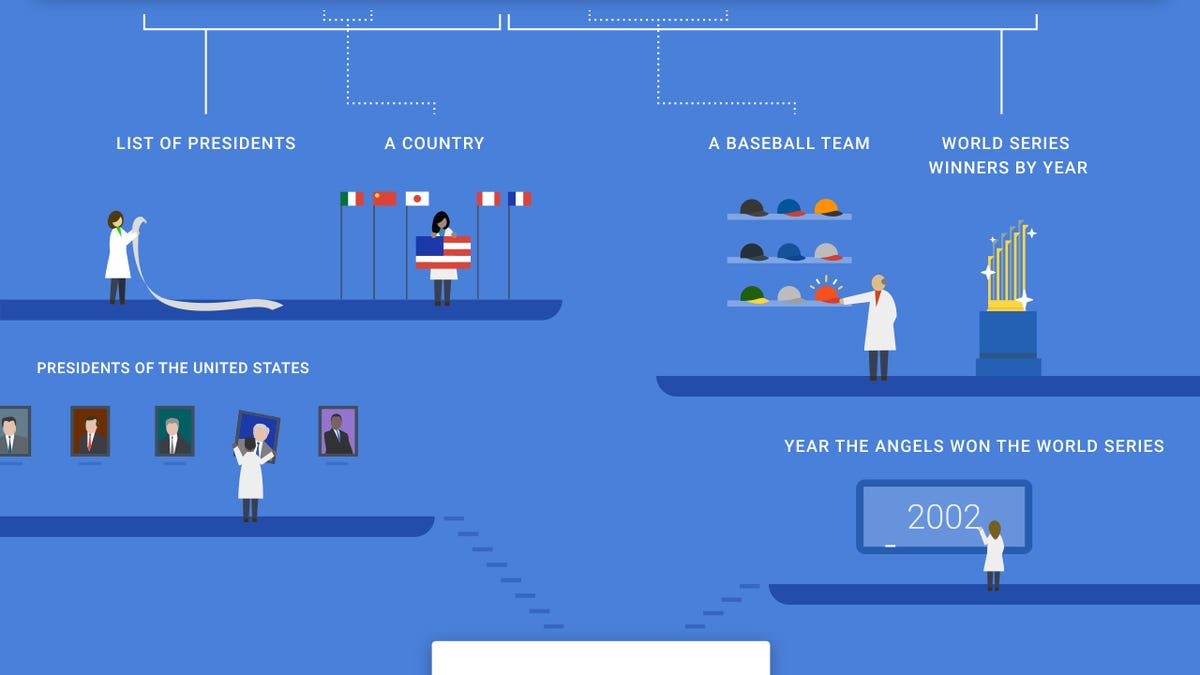Google's mobile app understands more-complex questions now
The search giant says its app has gotten better at breaking down your questions and understanding the intent of what you're asking.

Here's how Google answers a complex question.
Ask Google a question on your mobile device, and you may receive a better answer than you got in the past.
The Google search app for iOS and Android can respond to questions typed or spoken. Easy questions like "What is the capital of Brazil?" aren't generally a problem.
Interpreting a long, complex question is a different story. The software must parse out the various aspects of the question to understand them individually and then consider the question as a whole. It must also avoid misinterpretation as it figures out the context of words and phrases that pack shades of meaning. So what has Google done to improve its responses to both typed and spoken queries?
Steps have included the launch of voice-based search in 2008, Google product manager Satyajeet Salgar said in a blog post Monday. Then in 2012, Google launched Knowledge Graph, which surfaces fact boxes on search topics, courtesy of the company's massive database.
From answering simple questions like "How old is Stan Lee?" or "What did Leonardo da Vinci invent?" Google said it has graduated to trickier questions like "What are the ingredients for a screwdriver?" and knowing you mean the drink, not the tool.
Google now breaks down a query to interpret the semantics of each piece so it can better understand the intent of the entire question, or the full meaning of what you're asking. The search app relies on Knowledge Graph to locate the necessary data to provide a response.
For example, Salgar said, the app grasps superlatives such as "tallest" or "largest" as well as items in a particular order. So it can handle such questions as "Who are the tallest Mavericks players?" and "What are the largest cities in Texas?" Google also does a better job these days of interpreting dates, according to Salgar, so it can more easily answer questions such as "What was the population of Singapore in 1965?" and "What songs did Taylor Swift record in 2014?"
More crucially, Google can now handle more complex questions that incorporate events, dates and other criteria. To answer a question like "Who was the U.S. president when the Angels won the World Series?" the app breaks it into individual pieces, looking at a list of presidents in the US, all baseball teams, and a list of World Series winners by year. Google then puts all the pieces together to determine that the year the Angels won the World Series was 2002 and that George W. Bush was president at the time, Salgar said.
Machine results are still far from perfect.
Ask Google "Who was Dakota Johnson's mom in the movie?" and you'll receive a response of Melanie Griffith, Johnson's real-life mother, rather than Jennifer Ehle, who played the role of the mom in the movie "50 Shades of Grey." That one's still tricky for Google because you didn't specify the name of the film in your question.
"We're still growing and learning, which means we make mistakes," Salgar said.

